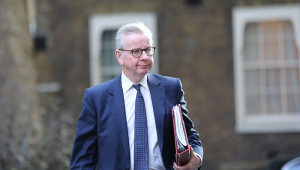The Ministry of Housing, Communities and Local Government said it would forgo a portion of funding from business rates to foot the £153m bill, which affects 168 authorities.
Revenue support grant can be used to finance revenue expenditure on any service.
As it is phased out and replaced by greater business rates retention, some councils will have to pay income back to government as part of the business rates top up and tariff system.
Announcing a technical consultation on the local government finance settlement for 2019-20, MHCLG said it had “formed an initial preference to eliminate the issue via forgone business rate receipts as the alternative options are either unaffordable or fail to resolve the issue”.
Another option, MHCLG said, would be to alter the core funding methodology by accounting for council tax in the core funding formula, and adjusting each local authority’s needs baseline assessment.
But the consultation document said this approach was “limited” as no approach to council tax weighting would completely eliminate negative RSG.
MHCLG also considered moving existing funding, or injecting additional funds into core funding, but said that this “merely serves to disguise the movement in tariffs and top-ups.”
Richard Watts, chair of the Local Government Association’s resources board, said the sector would be pleased with the government’s response.
“Many councils have been hugely concerned about the end of core central government funding next year and having to pay vital business rates income to the government as a result of negative RSG in 2019-20.
“Those affected will be pleased that the government is taking steps to address this issue next year. The LGA will be encouraging all our member councils to respond to this consultation.”
Watts also pointed out that local government in England faces a funding gap of almost £8bn by 2025 just to maintain services at current levels.











